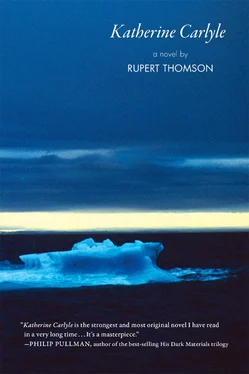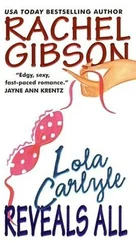Rupert Thomson
Katherine Carlyle

How slowly the time passes here,
encompassed as I am by frost and snow!
— MARY SHELLEY
Everything is torment, everything is song
I would love to be loved
And belong to someone
Belong to someone
— ENDRE ADY
I was made in a small square dish. The temperature was 37 degrees Celsius, like the inside of a human body. Like a womb. The dish had four shallow wells or indentations, and the word NUNC was stamped along one edge. My mother’s eggs were placed in the wells, no more than three in each, and then my father’s sperm was introduced, the sperm allowed to seek the eggs in a simulacrum of the reproductive process. The ingredients were all scrupulously harvested, meticulously screened. Something of hers, something of his — a precious pinch of each. Pale-blue figures drifted high above, like clouds.
Within a matter of hours I was transferred to a solution or “culture medium,” where I was supposed to “cleave.” Medium, cleave — these are the technical terms. During the next five days I divided into a blastocyst, consisting of approximately sixty cells. My progress was monitored by the figures dressed in blue. Sometimes they reached down and removed embryos that were judged to be nonviable. Not me, though. I remained untouched. This happened on the fourth floor of a West London hospital, in the Assisted Conception Unit.
Though I was one of several “Grade 1” embryos — clear cells, tight junctions, no evidence of fragmentation or “blebbing” — the technicians did not select me for immediate implantation. I was preserved instead.
Freezing me took an hour and a half.
Afterwards, I was stored in a squat steel barrel, vacuum-lined like a thermos flask and filled with liquid nitrogen. They put me in a microscopic transparent straw with air gaps on either side of me. The straw was slotted into a cane. Both the straw and the cane were labeled with the name and date of birth of the patient — my mother. I was suspended in a bath of cryoprotectant and assorted nutrients, and exposed to a temperature that was constant and extreme — minus 196 Centigrade.
At that time, in the 1980s, there was some dispute as to how long a frozen embryo was good for. Different governments held different views. In the UK frozen embryos were routinely disposed of when they were ten years old. The belief was that our cells deteriorated, forfeiting the resilience necessary to survive the thawing process. But no one really knew. The science was still in its infancy, and research had yet to produce definitive results. Such a curious notion, to be the defunct or superannuated version of something that hadn’t even existed. Like being a ghost, only the wrong way round. A ghost is somebody who has died but will not disappear. Can a ghost also be somebody who has never lived? Are there ghosts at either end of life?
The years went by.
Every now and then, and just for a few seconds, the lid was lifted off the storage tank and a torrent of white light poured down through the swirling mist. A number of embryos would be removed, but I remained where I was, in my see-through straw. The lid was replaced. Darkness descended once again.
Another beautiful September. The sun richer, more tender, the color of old wedding rings. Rome filling up again, people back at work after the holidays. I ride through the city, over potholes and cobbles, the sky arranged in hard blue blocks above the rooftops. The swallows have returned as well, flashing between the buildings in straight lines as if fired from a gun. I park my Vespa outside the station and walk in through the entrance.
It was spring when I first started noticing the messages. Back then, they were cryptic, teasing. While crossing Piazza Farnese, I found a fifty-euro note that had been folded into a triangle. A few days later, at the foot of the Spanish Steps, I found a small gray plastic elephant with a piece of frayed string round its neck. I found any number of coins, keys, and playing cards. None of these objects had anything specific to communicate. They were just testing my alertness. They were nudges. Pokes. Nonetheless, I felt a thrill each time, a rocket-fizzle through the darkness of my body, and I took photos of them all and stored them on my laptop, in a file marked INTELLIGENCE. The weeks passed, and the world began to address me with more precision. In May I stopped for a macchiato near the Pantheon. On my table was a scrap of paper with a phone number on it. I recognized the prefix — Bologna — and called the number. A woman answered, her voice hectic, a baby crying in the background. I hung up. The scrap of paper was a message, but not one I needed to pay attention to. In June I entered a changing cubicle in a shop on Via del Corso. Lying on the floor was a brochure for a French hotel. “Conveniently located for the A8,” the Hôtel Allure offered a “high standard of accommodation.” I borrowed my friend Daniela’s car on a Friday afternoon and drove for seven hours straight, past Florence and Genoa, and on around the coast to Nice. At midnight the hotel’s neon sign floated into view, the black air rich with jasmine and exhaust. I spent most of the next day by the pool. The hot white sky. The rush of traffic on La Provençale. In the early evening a man pulled into the car park in a silver BMW. He stood at the water’s edge, his shirtsleeves rolled back to the elbow. His name was Pascal, and he worked in telecommunications. When he asked me out to dinner — when he put that question — I somehow realized he wasn’t relevant. If the Hôtel Allure was a mistake, though, it was a useful one. I’ve been imagining a journey ever since.
The station concourse smells of ground coffee beans and scalded milk. I stare up at the Departures board. Firenze, Milano. Parigi . None of the names stand out, none of them speak to me. Voices swarm beneath the high sweep of the roof, footsteps echo on the polished marble, and then a feeling, sudden yet familiar — the feeling that I’m not there. It’s not that I’m dead. I’m simply gone. I never was. Panic opens inside me, slow and stealthy, like a flower that only blooms at night. The eight years are still with me, eight years in the dark, the cold. Waiting. Not knowing.
I deliberately collide with someone who happens to be passing. He’s in his early thirties. Black hair, brown leather jacket. He drops his bag. An apple rolls away across the floor.
“I’m so sorry,” I say.
“No, no,” he says. “My fault.”
The moment he looks at me, my existence comes flooding back. It’s as if I’m a pencil sketch, and he’s coloring me in. I go and fetch the apple. When I pick it up it fits my palm perfectly. The shape of it, the weight, makes everything that follows feel natural.
I hold it out to him. “I think it might be bruised.”
He looks at the apple, then smiles. “This is like a fairy tale. Are you a witch?”
“I just didn’t see you,” I say. “I should be more careful.” I’m breathless with exhilaration. I’m alive .
“Are you waiting for someone? Or perhaps you’re going somewhere —” He glances at the Departures board.
“I’m not going anywhere,” I say. “Not yet.”
Something in him seems to align itself with what I’m feeling. We’re like two people running side by side and he has fallen into step with me. Nothing needs to be explained, or even said. It’s understood. His eyes are dark and calm.
Читать дальше













